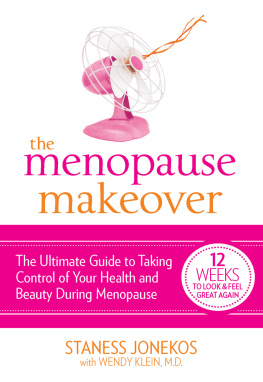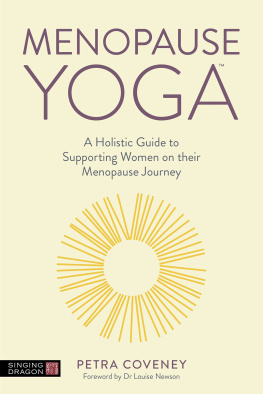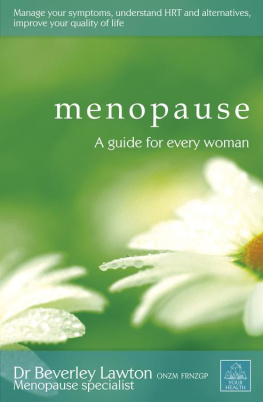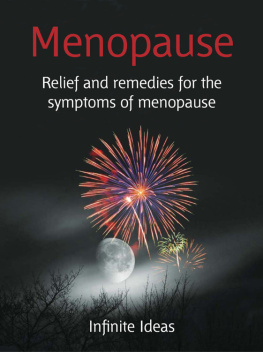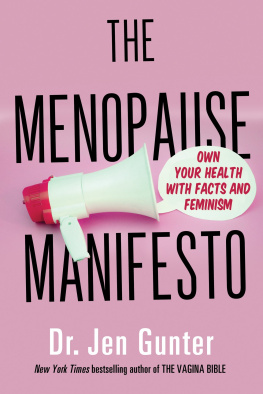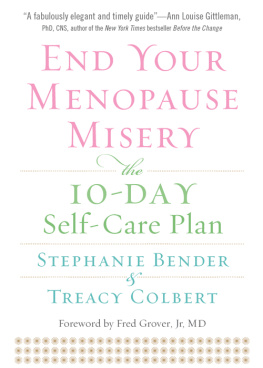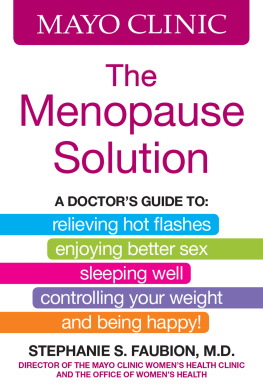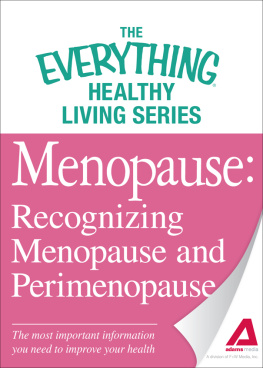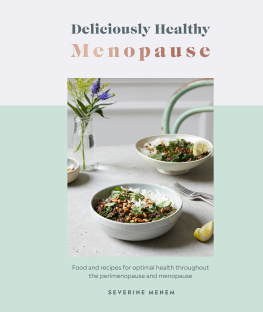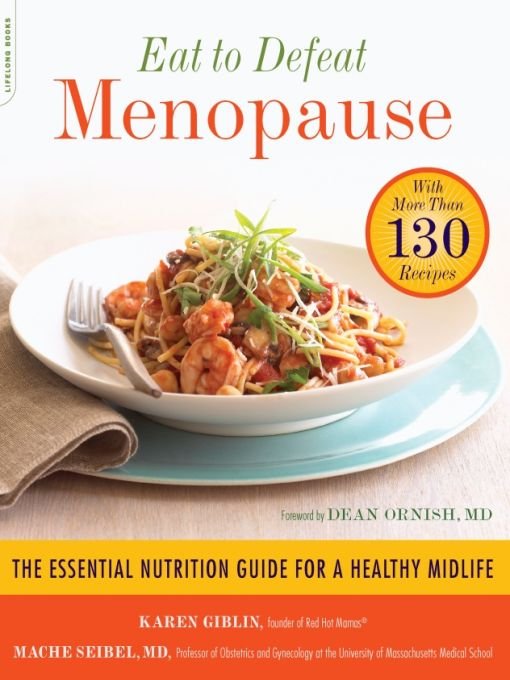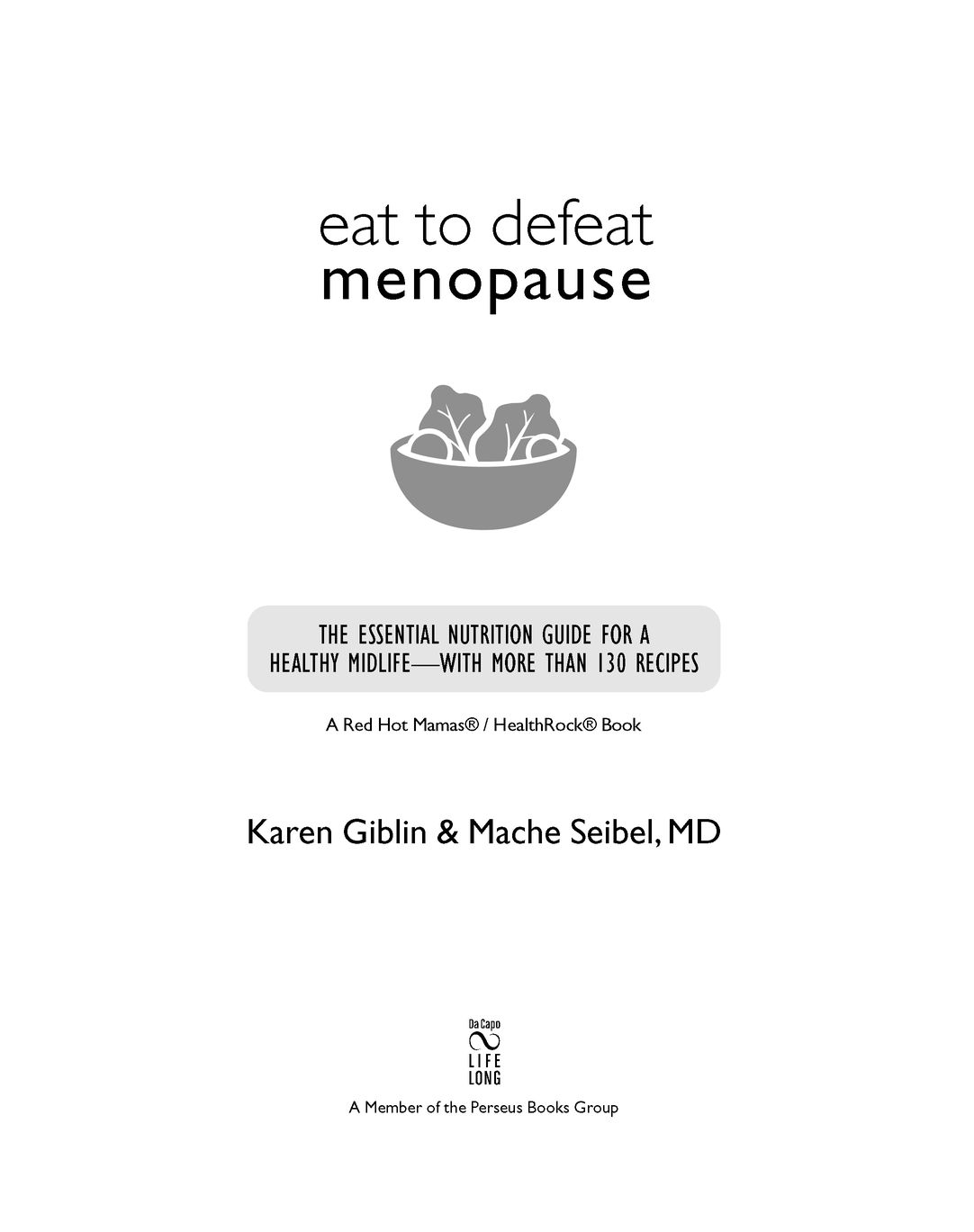Table of Contents
PRAISE FOR
Eat to Defeat Menopause
Great recipes for menopausal women. Dr. Seibel and Ms. Giblin give us excellent food choices that will optimize our health during our most productive years. And the food is delicious!
Julia Johnson, MD, Chair, Department of Obstetrics &
Gynecology, University of Massachusetts Medical School
This is far more than a cookbook. Its practical advice and essential information on menopause. And if you follow the recipes... you will be happy, healthy, and helping the non-menopausal members in the family as well.
Mary Jane Minkin, MD, Clinical Professor of Obstetrics &
Gynecology and Reproductive Sciences, Yale University School of Medicine
ALSO BY KAREN GIBLIN
Manual of Management Counseling for the Perimenopausal and Menopausal Patient: A Clinicians Guide (Written with Mary Jane Minkin, MD)
ALSO BY MACHE SEIBEL, MD
Save Your Life: What to Do in a Medical Emergency (Written with Shelly Glazier)
The Soy Solution for Menopause: The Estrogen Alternative (Author)
A Womans Book of Yoga: Embracing Our Natural Life Cycles (Written with Hari Kaur Khalsa)
Journal Babies: Your Personal Conception and Pregnancy Organizer (Written with J. Stephenson)
Infertility: A Comprehensive Text (Editor)
Technology and Infertility: Clinical, Psychosocial, Legal and Ethical Aspects (Edited with Ann Kiessling and Judith Bernstein)
Infertility: Your Questions Answered (Written with Howard S. Jacobs and S. L. Tan)
Family Building Through Egg and Sperm Donation (Written with Susan L. Crockin)
Ovulation Induction (Edited with Richard E. Blackwell, MD)
Infertility: A Comprehensive Text, 2nd Edition (Editor)
Infertility: Your Questions Answered, 2nd Edition (Written with Howard S. Jacobs and S. L. Tan)
We would like to dedicate this book to our mothers,
who taught us the importance of a healthy diet and made us realize that the main difference
between an Italian mother and a Jewish mother is how they make the sauce, and to our children
who have been taught to eat this, its good, and its good for you!
FOREWORD
Many people tend to think of breakthroughs in medicine as a new drug, laser, or high-tech surgical procedure. They often have a hard time believing that the simple choices we make in our lifestylewhat we eat, how we respond to stress, whether or not we smoke, how much exercise we get, and the quality of our relationships and social supportcan be as powerful as drugs and surgery, but they often are. Often, even better.
For more than thirty years, I have directed a series of studies showing what a powerful difference changes in diet and lifestyle can make. My colleagues and I at the nonprofit Preventive Medicine Research Institute showed, for the first time, that many diseases, including heart disease, prostate cancer, diabetes, and hypertension, are often reversible, and thus largely preventable.
We used high-tech, state-of-theart measures to prove the power of simple, low-tech, and low-cost interventions. We showed that integrative medicine approaches may stop or even reverse the progression of coronary heart disease, diabetes, hypertension, obesity, hypercholesterolemia, and other chronic conditions. We also published the first randomized controlled trial showing that these lifestyle changes may slow, stop, or even reverse the progression of prostate cancer, and may affect breast cancer as well.
Our latest research shows that changing lifestyle changes our genes in only three monthsturning on hundreds of genes that prevent disease and turning off genes and oncogenes associated with breast cancer and prostate cancer, as well as genes that cause heart disease, oxidative stress, and inflammation. We also found that these lifestyle changes increase telomerase, the enzyme that lengthens telomeres, the ends of our chromosomes that control how long we live. Even drugs have not been shown to do this.
Although its understandable that many people feel more bewildered than ever when they hear seemingly contradictory advice about different diets, there is actually a convergence of recommendations that is evolving. Some significant differences remain, but there is an emerging consensus among nutrition experts about what constitutes a healthy way of eating and living. It looks a lot like what you find in this book.
What you include in your diet is as important as what you exclude. There are at least 100,000 substances in foods that have powerful anticancer, antiheart disease, and antiaging properties. These include phytochemicals, bioflavonoids, carotenoids, retinols, isoflavones, genistein, lycopene, polyphenols, and so on. Where do you find these potent substances? With few exceptions, these protective factors are found in fruits, vegetables, whole grains, legumes, soy products, and some fish. These are rich in good carbs, good fats, good proteins, and other protective substances. The recipes in this book are high in these protective substances.
You have a spectrum of choices. In all of our studies, we found that the more you change your lifestyle, and the more things you change, the better you feel and the healthier you become. And the better you feel, the easier it is to maintain these changes. Sustainable changes are based on joy, pleasure, and freedom, not deprivation and austerity.
Its not just about preventing illness or living longer; its about living better. These lifestyle changes are likely to make you feel so much better, so quickly, that it reframes the reason for changing from fear of dying to joy of living.
When you eat and live healthier, your brain gets more blood so you think more clearly, have more energy, and need less sleep. You can even grow so many new brain cells that your brain can get measurably bigger in just a few months! Your skin gets more blood so you wrinkle less and look younger. Your sexual organs get more blood flow in the same way that drugs like Viagra work, so you enhance sexual potency. Now, Eat to Defeat Menopause describes how these same lifestyle changes can help empower and address the needs of menopausal women.
Dr. Seibel is a national expert in menopause and director of the Complicated Menopause Program at the University of Massachusetts Medical School, where he is also a professor. That, along with his books on soy, The Soy Solution for Menopause, and yoga, A Womans Book of Yoga, provide him the wisdom and experience to offer readers much-needed information. Karen Giblin founded Red Hot Mamas Menopause Education Programs in 1991. These programs are held in hospitals within the United States and Canada. She has conducted numerous research projects and is nationally recognized for her work in womens health. They have combined health information and recipes to help women on their journey through menopause. The selections in this cookbook are from the authors and from chefs across the United States. The information on menopause and recipes in this book should be of great help to women as they search for easy-to-understand information about this sacred and transformative stage of life. I hope you find it to be useful.


